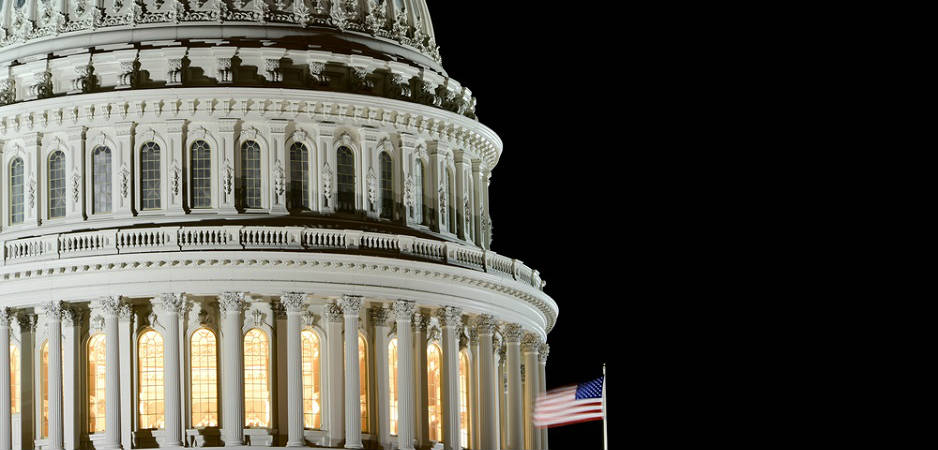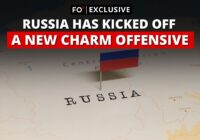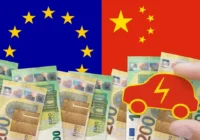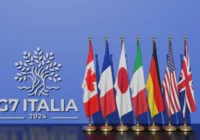Conflict in Yemen complicates negotiations between the US and Iran.
The conflict in Yemen escalated this week. Shiite Houthi rebels seized Aden airport and tightened their grip on the southern port town. They already control Sana’a, the capital city, and large parts of the country. President Abd Rabbuh Mansour Hadi has fled to Riyadh, the capital of Saudi Arabia. The Saudi-led coalition is bombing rebels and Operation Decisive Storm has begun in full swing.
For Saudi Arabia, the rise of the Houthis is unacceptable. Saudis wants Sunni domination south of their border and fear the growing influence of Iran in Yemen. It is little wonder that Saudi Arabia has summoned the entire Sunni world to its cause. A huge number of warplanes are already in action — 100 from Saudi Arabia, 30 from the United Arab Emirates (UAE), eight from Bahrain, six each from Morocco and Jordan, and three from penurious Sudan.
Others are joining this multi-star operation. Egypt has declared its willingness to send troops to fight Houthi rebels. Nuclear-armed Pakistan, whose founder was Shiite, might also jump in. Prime Minister Nawaz Sharif has declared that Pakistan has brotherly relations with Saudi Arabia and will fight to protect Saudi security. A little bit of oil goes a long way. Petrodollars help too.
Naturally, Iran is not too pleased. It condemned Saudi aggression as an American-backed attempt “to foment civil war in Yemen or disintegrate the country.” Iran is backing the Houthis, though it does not have the same influence over them as it does over Hezbollah in Lebanon. Complicating the picture further is the presence of al-Qaeda in the Arabian Peninsula and the emergence of the Islamic State (IS). Tribal divisions further muddy the waters to the extent that it is unclear as to who is fighting whom at any given time.
The escalation of violence in Yemen is making negotiations at Lausanne tougher. US Secretary of State John Kerry and Iranian Foreign Minister Javad Zarif have less than a week to hammer out some outline of a deal. If they make progress, diplomats from Britain, China, France, Germany and Russia will join them. The incentives for peace are strong, but the Great Satan and a member of the Axis of Evil are not the best of bedfellows. The Saudis and the Israelis make a bad situation worse.
At least, rapprochement is fast taking place between Cuba and the European Union (EU). Federica Mogherini, the foreign minister of the EU, visited the island to boost trade and investment. Just like Myanmar, Cuba presents a salivating prospect for investors and exporters. The island itself needs to energize its economy and create jobs. Therefore, it is little surprise that both sides agreed to speed up negotiations to normalize relations and set the goal of reaching a framework agreement by the end of the year.
The foreign ministers of China, Japan and South Korea met for the first time in three years. Tensions have run high in the recent past over islands that each of them claims for itself. Chinese assertion rattles its neighbors in Asia, including Japan and South Korea. Japanese denial of war crimes and prime ministerial visits to Yasukuni irk China and South Korea. Yet China is the biggest trading partner of both South Korea and Japan. The destiny of these three countries is increasingly intertwined. Therefore, it is heartening that they are talking instead of scrambling jets in a standoff against each other.
This week Lee Kuan Yew, the creator of modern Singapore, died. He studied law at Cambridge, and as the British “civilized” him, he lost his deference for them. As he went on to say: “I saw no reason why they should be governing me; they’re not superior. I decided when I got back, I was going to put an end to this.”
Lee Kuan Yew led a life out of a movie. During World War II, he nearly died at the hands of the Japanese. Later, he experienced many upheavals, and his greatest achievement was the transformation of a tiny struggling island into a rich modern city state. He did not desire the independence of Singapore and announced it in tears when Malaysia kicked out the city from the federation in 1965. Yet he rebounded as he always did in a spectacular manner. By the end of his life, he emerged as the senior statesman of Asia who was trusted by the United States and China.
Today, Singapore is seen as a shining example of meritocracy, dynamism and good governance. Yet the Singaporean model is in question. Falling birth rates and increasing immigration are creating new tensions. The exam-based meritocracy favors middle-class families and a new class system has emerged. Lee Kuan Yew’s son is now prime minister and younger people chafe for more freedoms. Once Lee Kuan Yew declared: “Everybody knows that in my bag I have a hatchet, and a very sharp one. You take me on, I take my hatchet, we meet in the cul-de-sac.” Younger Singaporeans, including his son, do not have the same iron in them as the old man, and the city state will change now that Lee Kuan Yew has gone.
Meanwhile, the China National Chemical Corporation (CNCC) bought a controlling stake in Pirelli, a leading tire manufacturer based in Italy. For $7.7 billion, the state-owned CNCC will gain control of a global brand name. In the past, Lenovo bought IBM’s personal computer business and has been able to maintain its brand in the global market. Chinese firms will move up the value chain in the days to come. They will buy leading companies and acquire technology as well as know-how to run a new kind of multinational corporation with closer ties to the state.
Finally, two tragedies occurred this week. First, a plane crashed in the Alps, killing all 150 people on board. It turns out that the German co-pilot, Andreas Lubitz, crashed the plane deliberately. This puts into focus the mental well-being of pilots who have the ability to kill many people and cause a terrible tragedy. Second, floods caused mayhem in the Atacama Desert in Chile, one of the driest places on the planet, while forest fires wreaked havoc in three national parks because of a prolonged drought. Clearly, weather patterns are changing dramatically, creating uncertainty and causing devastation in many parts of the world.
*[You can receive “The World This Week” directly in your inbox by subscribing to our mailing list. Simply visit Fair Observer and enter your email address in the space provided. Meanwhile, please find below five of our finest articles for the week.]
[seperator style=”style1″]Germanwings Flight 4U9525: Deadlock Between Safety and Security[/seperator]
As the Germanwings tragedy shows, the aims of safety and security are not always on the same team.
It seems incredible that a pilot of a passenger aircraft could be locked out of the cockpit. But analysis from the cockpit voice recorder recovered from Germanwings Flight 4U9525, which ploughed into the Southern Alps in France on March 24, has revealed that this is what happened, and that one of the two pilots had been trying to get into the cockpit before the crash.
An initial explanation that the pilot at the controls was incapacitated, perhaps from a heart attack, has since given way to an alternative given by French investigators: that the co-pilot in the cockpit — named as Andreas Lubitz — deliberately prevented the captain from entering, in order to destroy the aircraft.
Following the attacks on September 11, 2001, passenger aircraft cockpit doors have been reinforced to be made secure and even bulletproof. Access to the cockpit must be locked during flight, preventing passengers… Read more
[seperator style=”style1″]Nigerian Elections Set the Stage for Jonathan vs Buhari[/seperator]
Nigeria faces an uphill battle as it wades through challenges that could derail its presidential elections.
Seen as a fast growing economy and a strong democratic force in the region, Nigeria is at a crossroads in its journey as a rising African power. Marred by the emergence of Boko Haram, the calcification of the north-south split and falling oil prices, Nigeria’s future lies in the hands of its contentious and highly anticipated presidential elections.
Nigeria is Africa’s most populous nation and largest economy, which is projected to become the world’s 13th largest by 2050. Unfortunately, the country faces strong centrifugal forces as it is roughly divided along ethno religious lines between a generally poor Muslim north and a more economically advanced Christian south, with a middle belt acting as a buffer. The unequal level of development has led to tenuous relations between the two regions and has exacerbated the struggle for political power.
On March 28, Nigerian President Goodluck Jonathan, a Christian from… Read more
[seperator style=”style1″]Germany Needs To Get Its Economic Act Together[/seperator]
Citizens of the eurozone should pay close attention to economic policy debate about Germany.
Simon Tilford, deputy director of the Centre for Economic Reform, has some critical things to say about Germany’s economic policy in a recent publication. He says Germany is not serving its own economic interests by running a large balance of payments surplus. A country with such a surplus must reinvest abroad, and he says Germans have lost almost a third of what they invested internationally since 1999. This is because they put the cash in property bubbles that burst and other poorly chosen investments.
Tilford says Germans would have been better off investing at home. German money has gone into ghost estates in foreign countries instead of research and development, and roads and schools in Germany itself. That would have boosted German wages, spending and imports.
Some of those extra imports might come from other eurozone countries, who currently have deficits, and this would make the euro… Read more
[seperator style=”style1″]Who Will Succeed Ayatollah Khamenei?[/seperator]
Rumors about the Iranian supreme leader’s health highlight uncertainty around his eventual successor.
On March 8, images showing Iran’s supreme leader, Ayatollah Ali Khamenei, speaking in public were broadcast on state television, in an apparent attempt to end speculation in foreign media that he was unwell. Although Khamenei appeared to be in good health, reports have drawn attention to the uncertainty surrounding Iran’s succession process. Despite the predominance of hard-liners in the regime, it remains unclear who will ultimately prevail in this process, which will have significant consequences for the country’s long-term economic and foreign policies.
Iranian state television showed undated images on March 8 of Khamenei addressing environmental activists in Tehran, in an attempt to quiet rumors in foreign media that he was in a critical condition in hospital. The claims first emerged in the Israeli press after the supreme leader had been out of the public eye for several days, and came after he spent a week in hospital in September recovering… Read more
[seperator style=”style1″]America’s Retreatniks Are Too Busy Calling the Kettle Black[/seperator]
Foreign policy hawks are aflutter about “American retreat,” yet they’re the ones stonewalling on sending US representatives to global institutions.
The new talking point for the Republican Party — actually, it’s an old talking point in expensive new clothing — is “America is in retreat.”
That’s the title of a recent book by Bret Stephens, a Wall Street Journal columnist who believes that he’s discovered a virus of “neo-isolationism” infecting the White House. His book is a full-throated defense of maintaining US global dominance. And a number of Republican presidential hopefuls — Ted Cruz and Lindsey Graham — are echoing the same rhetoric.
Stephens draws a distinction between decline and retreat. The first is a relative term that depends a great deal on what’s happening around the world: the rise of China, military setbacks in Afghanistan and Iraq, the strength of the dollar and so on. The second, however, is a matter of political choice. And Barack Obama, he argues, is guilty as charged. Read more
The views expressed in this article are the author’s own and do not necessarily reflect Fair Observer’s editorial policy.
Photo Credit: Danielo / Diyben / Shutterstock.com
 We bring you perspectives from around the world. Help us to inform and educate. Your donation is tax-deductible. Join over 400 people to become a donor or you could choose to be a sponsor.
We bring you perspectives from around the world. Help us to inform and educate. Your donation is tax-deductible. Join over 400 people to become a donor or you could choose to be a sponsor.
Support Fair Observer
We rely on your support for our independence, diversity and quality.
For more than 10 years, Fair Observer has been free, fair and independent. No billionaire owns us, no advertisers control us. We are a reader-supported nonprofit. Unlike many other publications, we keep our content free for readers regardless of where they live or whether they can afford to pay. We have no paywalls and no ads.
In the post-truth era of fake news, echo chambers and filter bubbles, we publish a plurality of perspectives from around the world. Anyone can publish with us, but everyone goes through a rigorous editorial process. So, you get fact-checked, well-reasoned content instead of noise.
We publish 2,500+ voices from 90+ countries. We also conduct education and training programs
on subjects ranging from digital media and journalism to writing and critical thinking. This
doesn’t come cheap. Servers, editors, trainers and web developers cost
money.
Please consider supporting us on a regular basis as a recurring donor or a
sustaining member.
Will you support FO’s journalism?
We rely on your support for our independence, diversity and quality.













Comment